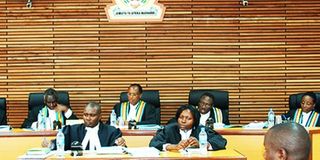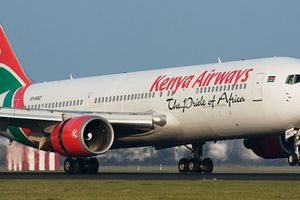Case to be heard this week

What you need to know:
- The case was jointly filed by the Media Council of Tanzania (MCT), Legal and Human Rights Centre (LHRC) and Tanzania Human Rights Defenders Coalition (THRDC), opposing some articles of the new media law.
Dar es Salaam. The East African Court of Justice (EACJ) will start the hearing of a landmark case tomorrow filed by media stakeholders challenging the Media Services Act (MSA) of 2016.
The case was jointly filed by the Media Council of Tanzania (MCT), Legal and Human Rights Centre (LHRC) and Tanzania Human Rights Defenders Coalition (THRDC), opposing some articles of the new media law.
The respondent in this case is the Attorney General. The applicants are represented by advocates Fulgence Massawe, Mpale Mpoki, Jenerali Ulimwengu, Donald Deya and Jebra Kambole.
According to a notice issued by the EACJ, the case will begin by a procedural arrangement referred to in judicial parlance as Scheduling Conference to be held before a panel of five judges namely Principal Judge Monica Mugenyi, Dr Faustin Ntezilyayo, Dr Charles Nyawello, Fakihi Jundu and Audace Ngiye.
It is over a year since the case was filed at the EACJ offices in Dar es Salaam on January 11, 2017 slightly over two months after the law was passed by the National Assembly on November 5, 2016 and assented to by President John Magufuli on November 16, 2016.
Media stakeholders had requested for more time to deliberate and provide their inputs to the proposed legislation, but their efforts were not considered and the parliament went on to enact the law and the President hurriedly assented.
The applicants oppose several articles of the legislation which they claim impinge on freedom of the press and freedom of expression. The complainants argue that some of the provisions contravene the Treaty for the establishment of the East African Community, which urges member countries to abide by and protect all rights stipulated in the treaty.
The Treaty calls for maintenance of principles of good governance, democratic rule, rule of law, accountability and transparency.
“Therefore, by violating the right to freedom of expression of the press, Tanzania has failed to adhere to and comply with its obligations under Articles 6(d) and 7(2) of the Treaty, including its obligation to recognise, promote and protect human rights as well as maintain universally accepted standards of human rights,” suggests the complainants. The applicants submitted complaints on various provisions urging that they have failed to live up to expectations of the Treaty.
These are sections 7(3) (a), (b), (c), (f), (g), (h), (i) and (j) of the Act, which place vague and imprecise restrictions on the media that disproportionately and unreasonably restrict what a media outlet can publish.
Sections 13, 14, 19, 20 and 21 of the Act require a compulsory accreditation regime for all journalists in the country and give power to the Board of Accreditation to suspend or bar an individual from practising as a journalist.




